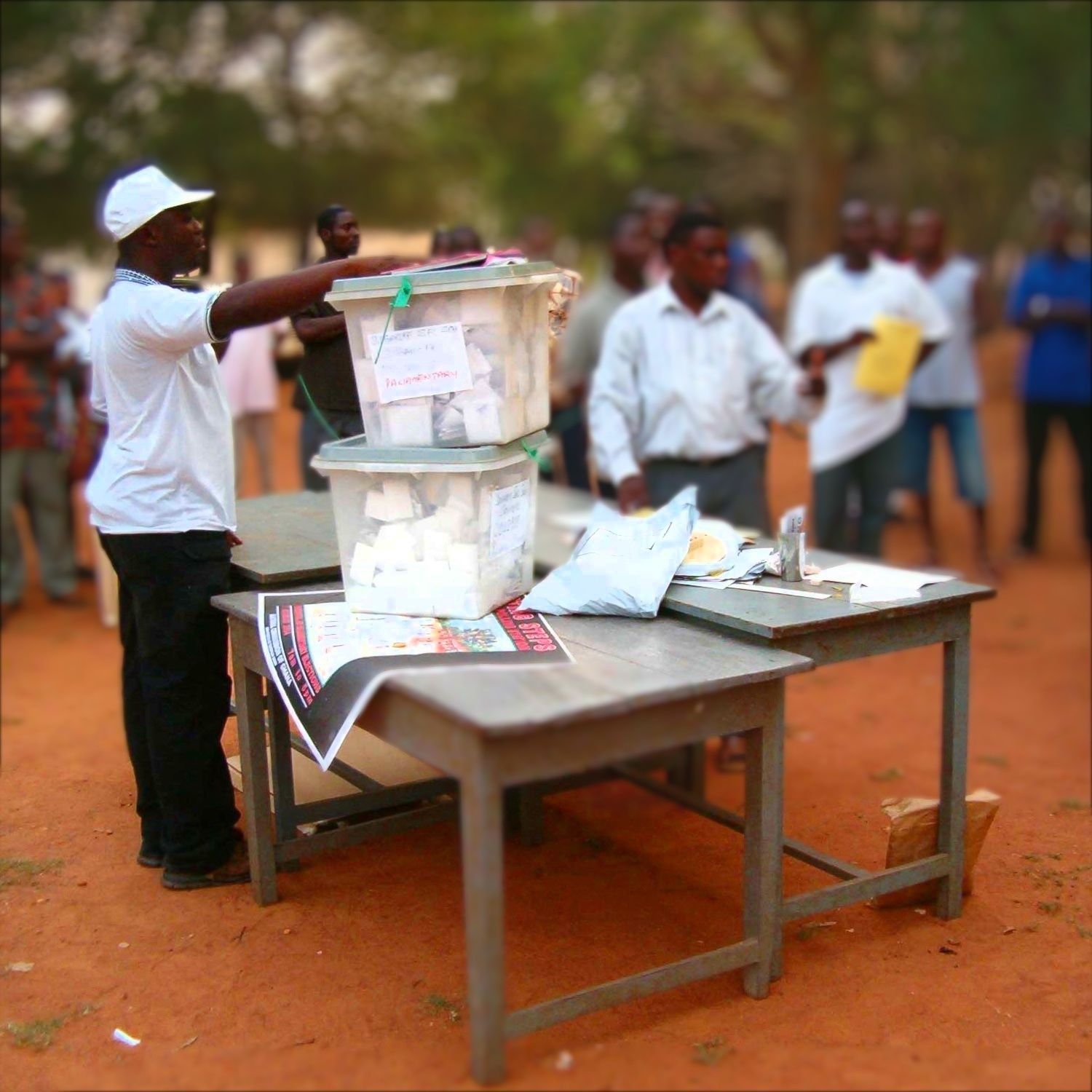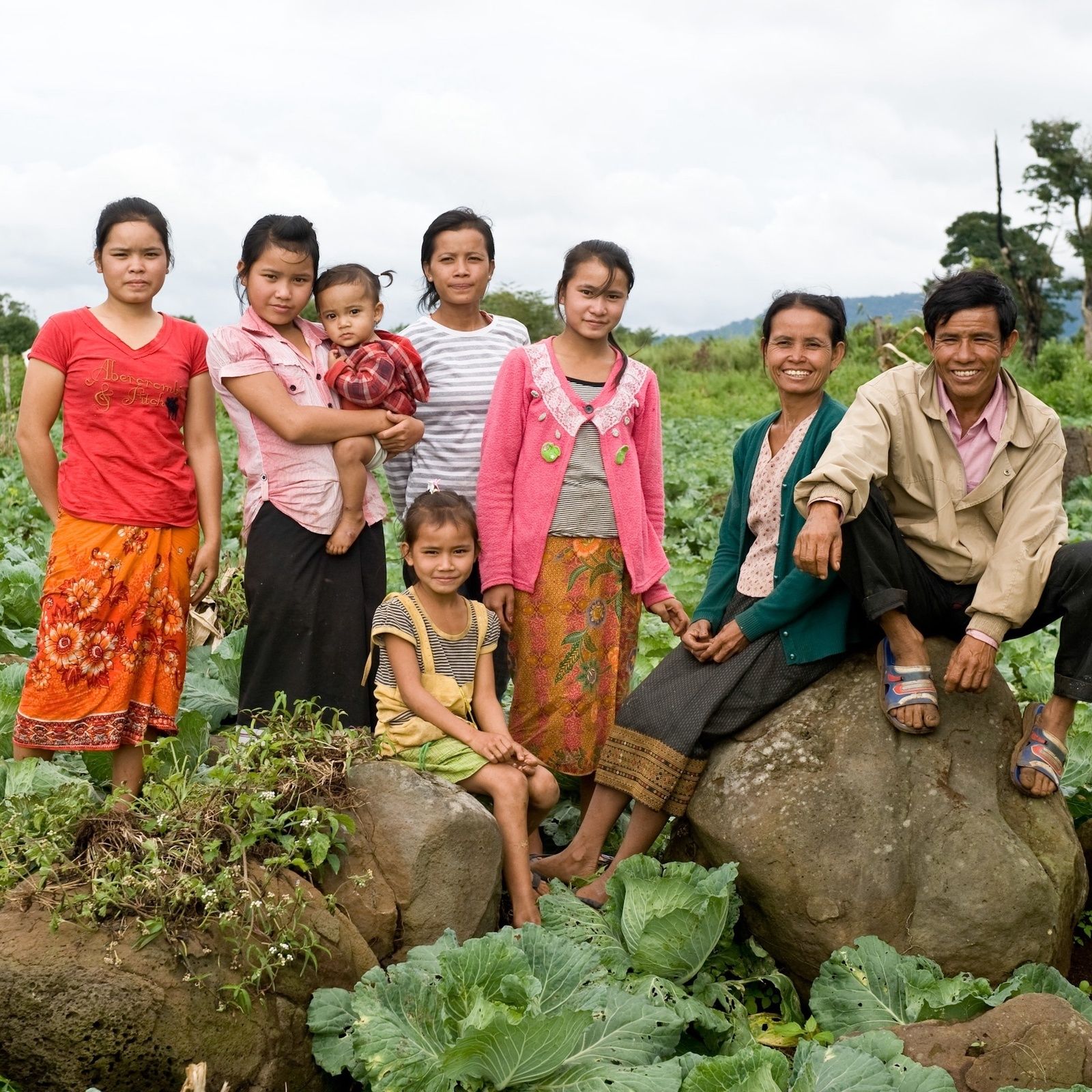 Sign in
Sign in
Government
Science
VoxDev.org
Hear about the cutting edge of development economics from research to practice.

S2 Ep34: Job loss and crime in Brazil
When workers become unemployed, do some turn to crime instead – and does unemployment insurance make a difference? Diogo Britto and Paolo Pinotti tell Tim Phillips about how disaggregated data gives a powerful new insight on the relationship between job loss and crime.
16:1015/09/2022

S2 Ep33: Politics at work
Does who you vote for influence the chances that you are hired, fired, and promoted? Edoardo Teso tells Tim Phillips about Brazil’s politically polarised labour market.
14:5307/09/2022

S2 Ep32: Expanding access to clean water
Almost 2 billion people don’t have access to clean water, which means increased risk of disease, especially for young children. Pascaline Dupas tells Tim Phillips how an experiment in Malawi that provided access to the chemicals to treat dirty water may save lives in many other countries too.
15:5610/08/2022

S2 Ep31: Enhancing women’s economic empowerment
Do policies to provide women with financial resources or financial services give them more economic independence? Less often than we would like, Mikaela Rabb tells Tim Phillips.
12:5703/08/2022

S2 Ep30: Criminal governance in Colombia
If weak states fail to provide order and security, sometimes criminal gangs step in. Can this problem be fixed by targeting resources to the places most in need of help, and what happens when we do? Ben Lessing tells Tim Phillips about a project to do this in Colombia’s second largest city.
22:5527/07/2022

S2 Ep29: How workfare cut conflict
By 2030, half the world’s poor will be living in conflict-affected areas. Could some of the resources dedicated to helping them be spent to prevent those conflicts? Thiemo Fetzer of the University of Warwick tells Tim Phillips how providing workfare in India reduced community violence.
25:4420/07/2022

S2 Ep28: Surviving the hungry season
For small farmers the most difficult months of the years are the “hungry season” before the harvest. What would be the effect of a small loan at this time? A program in Zambia tweaked the rules of microfinance. Günther Fink and Kelsey Jack tell Tim Phillips about what happened.
18:2413/07/2022

S2 Ep27: Respond or anticipate?
In the monsoon season of 2020, 5.5 million people in Bangladesh were affected by severe floods. But the UN was able to help thousands of households by sending them cash before the floods hit. Ashley Pople and Ruth Hill tell Tim Phillips about the situations in which anticipatory transfers might work better than conventional disaster response.
15:5106/07/2022

S2 Ep26: Poverty and resilience
When households escape poverty, how likely is it they will fall back in the future? Loki Phadera of the World Bank and Hope Michelson of the University of Illinois explain to Tim Phillips why measuring resilience can give us a new perspective on how well anti-poverty programs are working – if only we can agree how to do it.
25:3729/06/2022

S2 Ep25: Cash transfers and child health
Children in low-income countries are 12 times more likely to die before their fifth birthday than those in high-income countries. Cash transfers to households may increase money spent on the health of children – but how large are the outcomes, and should the transfers specifically target child health? Anupama Dathan talks to Tim Phillips.
12:4522/06/2022

S2 Ep24: How Airbel Lab creates cost-effective impact
Which interventions work best, and how can we tweak them to work better? How well could they work in other places, and what changes should we make? Airbel Impact Lab, part of the International Rescue Committee, designs, tests, and scales life-changing solutions for people affected by conflict and disaster. Tim Phillips talks to Jeannie Annan and Caitlin Tulloch about their work.
30:0615/06/2022

S2 Ep23: Resolving disputes in Liberia
When there is conflict, can outsiders help by creating informal ways for communities to resolve their disputes? Chris Blattman tells Tim Phillips about the long-term impact of a project to do exactly this in Liberia.
17:1508/06/2022

S2 Ep22: Seed dealers can be change agents
How do we encourage small farmers to adopt new types of seeds in LICs? Government agents can help spread the word – but Kyle Emerick of Tufts University tells Tim Phillips that the dealers who sell the seeds might be an under-used resource.
15:4001/06/2022

S2 Ep21: Targeting the ultra-poor in Afghanistan
People who live in extreme poverty are increasingly concentrated in fragile and conflict-affected areas. Can a "big push" from the Targeting the Ultra Poor program help? Guadalupe Bedoya and Aidan Coville of the World Bank, and Mohammad Isaqzadeh of Princeton, are part of a team that evaluated the results of an attempt to lift 1,200 households out of poverty in Afghanistan.
25:3925/05/2022

S2 Ep20: Targeting the ultra-poor
If poor people are caught in a poverty trap, a large one-time grant might be life changing. That's the thinking behind programs to target the ultra-poor. But is the impact of this "big push" genuinely permanent? Garima Sharma tells Tim Phillips about the impact of a program in India, 10 years on.
13:1518/05/2022

S2 Ep19: Better seeds or better insurance?
Extreme weather doesn't just ruin one crop: it means that the following year small farmers won't have income to invest. Better seeds and insurance against this sort of bad luck are partial solutions, but what if we combine them in one package? Paswel Marenya tells Tim Phillips about a successful multi-year trial in Tanzania and Mozambique.
17:4511/05/2022

S2 Ep18: Progresa's legacy, 20 years on
Progresa was the groundbreaking and much-copied cash transfer program created by the Mexican government in 1997. Literally millions of children benefited from it. But are they still feeling that benefit? Karen Macours tells Tim Phillips about how a group of economists tracked down the first Progresa generation, and what they discovered.
14:1704/05/2022

S2 Ep17: Hiring from suppliers and customers
Research from the Dominican Republic shows that it is more common than we assumed (and more beneficial to both parties) if workers move to another firm in the same supply chain. Cian Ruane tells Tim Phillips why this hard-to-spot effect is important for economic development.
14:3027/04/2022

S2 Ep16: Does workfare work?
How much do we know about what workfare programs achieve for people who take part? An analysis of one program in Côte d’Ivoire fills in some of the gaps in our knowledge, Patrick Premand tells Tim Phillips.
25:0120/04/2022

S2 Ep15: Making entrepreneurs
Entrepreneurs create most of the new jobs in Africa. But can the skills of an entrepreneur be taught, and which skills will be most useful for Africa's young businesspeople? Paul Gertler tells Tim Phillips about a groundbreaking training program in Uganda.
21:4113/04/2022

S2 Ep14: Does being open to trade help development?
Economists have been arguing about whether openness to international trade creates growth for 250 years. David Atkin tells Tim Phillips about his analysis of the conditions in which increased openness improves welfare in a developing country.
15:4606/04/2022

S2 Ep13: Distortion by audit
Auditing ensures public procurement is good value. Or does it? An experiment in Chile suggests the audit itself makes procurement less efficient afterwards. Dina Pomeranz opened the black box of the audit process and tells Tim Phillips what she discovered.
18:2830/03/2022

S2 Ep12: Creating social cohesion in Turkey's schools
Turkey has received 4m refugees from Syria, a quarter of them children. How can its schools integrate so many new students, help them to make friends and to learn a new language? Sule Alan tells Tim Phillips about a program that has successfully built social cohesion in Turkey's schools.
21:1123/03/2022

S2 Ep11: Pensions and poverty in Paraguay
Paraguay, like Peru and Mexico, is supporting seniors with a monthly non-contributory pension payment. What difference does this income make to the people who receive it? Quite a lot, Sebastian Galiani tells Tim Phillips.
12:3116/03/2022

S2 Ep10: Food or food stamps?
Indonesia recently started providing vouchers instead of rice to millions of households. Elan Satriawan of National Team for Acceleration of Poverty Reduction tells Tim Phillips that this has made it possible to target aid better and is cheaper to administer too.
21:0209/03/2022

S2 Ep9: Is information or cash the cure for malnutrition?
Malnutrition in children is a silent killer. Is it made worse by lack of knowledge or lack of income? Michael Levere tells Tim Phillips about an experiment in Nepal that investigated the best way to help mums-to-be.
15:1202/03/2022

S2 Ep8: Rural roads, agricultural extension, and productivity
In Ethiopia, one development program is building roads to remote villages, while another tries to make small farms more productive. Mesay Gebresilasse tells Tim Phillips how well the projects work individually – and how much more successful they are when implemented together.
15:2023/02/2022

S2 Ep7: Corruption and firms in Brazil
In May 2003 the Brazilian government launched an anti-corruption program that exposed and suspended corrupt public officials. Emanuele Colonnelli tells Tim Phillips that the campaign worked – and not just in the districts that were audited.
21:2016/02/2022

S2 Ep6: Building trust in Pakistan's court system
When courts lack credibility, non-state actors may step in – and the less that we engage with state institutions, the weaker they become. How do we turn this around? Daron Acemoglu tells Tim Phillips about an experiment to inspire more trust in the state among the citizens of Punjab in Pakistan.
16:1409/02/2022

S2 Ep5: Supporting learning out of school
In developing countries, more than 90% of children go to primary school. How can we best support their learning? An experiment in India targeted both the times the kids are in school, and the times they are not. Martina Björkman Nyqvist tells Tim Phillips what works -- and what doesn't.
20:1202/02/2022

S2 Ep4: Disaster relief in Mexico
The Mexican government attempted to reduce the effect of extreme weather on people’s lives by establishing FONDEN, a fund to finance recovery and reconstruction. Alejandro del Valle tells Tim Phillips whether it succeeded.
20:0926/01/2022

S2 Ep3: The legacy of autocracy in China
When state repression does its job, does it make us less charitable and less likely to speak our minds afterwards – and, if so, how long does that effect last? Melanie Meng Xue discusses the centuries-long legacy of autocratic rule in China.
19:3419/01/2022

S2 Ep2: The gender pay gap in India's markets
In almost every job, in high and low-income countries, women earn less than men. Solène Delecourt tells Tim Phillips about a series of experiments that help explain why male vegetable sellers in Jaipur, India earn more than their female competition – and what can be done about it.
16:1012/01/2022

S2 Ep1: Are there too many farms in the world?
Low-income countries have many small farms, and high-income countries have far fewer large farms and much higher agricultural productivity. Tim Phillips asks Mark Rosenzweig whether developing countries would be better off with bigger farms.
18:4405/01/2022

S1 Ep70: India's school assessments fail the reliability test
In India, tests intended to evaluate overall student achievement, soon to be rolled out nationally, suffer from massive grade inflation - even though no children or teachers are rewarded or punished based on the results. Ahbijeet Singh tells Tim Phillips why this happens and how we can collect more reliable administrative data in future.
26:1415/12/2021

S1 Ep69: Stay or migrate?
A structural transformation means workers moving to cities for good jobs, or better living conditions for their families, maybe also having smaller families. But these decisions are not made independently: new research examines the trade-off that we make between migration and fertility, and suggests that China's migration and one-child policies may not have been the boost to economic growth that policymakers wanted.
26:0108/12/2021

S1 Ep68: Do marketers matter for entrepreneurs?
Entrepreneurs in developing countries need access to finance, education, and better institutions. But do they need more marketing? Stephen J Anderson of the University of Texas tells Tim Phillips about an experiment in Uganda that suggests that the answer is yes for both the entrepreneurs, and for economic growth.
19:0201/12/2021

S1 Ep67: The search for good jobs
There are 420 million young people in Africa today, but 140 million are unemployed, and another 130 million are underemployed or in working poverty. What type of interventions will help them in their search for a good job? Anna Vitali and Imran Rasul tell Tim Phillips about a multi-year experiment in Uganda that reaches some surprising conclusions.
25:4824/11/2021

S1 Ep66: Information operations and civilian cooperation
In many conflict situations, should winning hearts and minds be the priority? Information operations are an essential part of military strategy, but so far there have been few systematic evaluations of how well they actually work. Using a new source of data Austin Wright tells Tim Phillips about the success of one such operation in Afghanistan.
17:2617/11/2021

S1 Ep65: A low-cost way to raise tax revenues in Uganda
Policy to increase tax compliance in developing countries often focuses on enforcement, and that's difficult, unpopular, and costly. Are there other ways to encourage small businesses to pay tax that may be easier and cheaper? Isabelle Cohen worked with the Uganda Revenue Authority to implement a method that raised six times what it cost.
12:4010/11/2021

S1 Ep64: Caste and occupation in India
India's caste system traditionally determined which occupation families chose. In modern India, does caste still influence someone's choice of job? Daniel Keniston tells Tim Phillips about the surprisingly complex relationship between caste, work, and India's economic development.
17:5103/11/2021

S1 Ep63: Controlling Indonesia's forest fires
Satellite data from Indonesia shows the damage that out-of-control illegal forest fires, set by farmers to clear their land, do to other people's property and to the environment. Ben Olken tells Tim Phillips how we could reduce this damage by up to 80%.
10:5327/10/2021

S1 Ep62: Buying votes
Politicians can bribe their way to an election win, but in a democracy we throw them out if they perform badly afterwards. Or maybe not: Jessica Leight tells Tim Phillips that vote-buying emboldens corrupt politicians to steal more, and that voters who take the handouts are also less likely to hold them to account.
12:5820/10/2021

S1 Ep61: Incentivising Africa's businesses to pay taxes
Low-income countries struggle to collect tax, hurting economic stability, raising debt levels, cutting growth, and gutting basic services. Abebe Shimeles of African Economic Research Consortium tells Tim Phillips about a successful experiment in Ethiopia that also demonstrates the problem of creating sustainable policies to increase tax revenues.
17:2013/10/2021

S1 Ep60: The value of India's rural roads
Big infrastructure projects are often dismissed as expensive and problematic. But Yogita Shamdasani tells Tim Phillips how a national roadbuilding program in India has transformed the lives of villagers by making agriculture more productive.
14:5106/10/2021

S1 Ep59: Rewarding voters in Ghana
Will a government target spending in places where it thinks it can pick up support in the next election, or target funding to regions that supported it? A new paper analyses election results and local government spending in Ghana. Samuel Obeng tells Tim Phillips whether a political system created in part to defeat cronyism has worked as intended.
11:0629/09/2021

S1 Ep58: Families as social institutions
When economists talk about the "household", they usually mean a family. But Natalie Bau and Raquel Fernandez tell Tim Phillips that there are many types of family, with many cultural traditions and habits, and these differences can have a big impact on whether well-meaning attempts to improve their lives will succeed or fail.
31:2222/09/2021

S1 Ep57: Education technology: Ready for prime time?
For half a century Mexico's rural middle-schoolers have attended "telesecundaria" schools, in which they watch their lessons on TV. It saves money and makes sure that kids have qualified teachers. But, Raissa Fabregas tells Tim Phillips, we don't really know if they provide a good education. Until now.
18:3520/09/2021

S1 Ep55: Learning from our urban past
Cities in developing economies can still learn a lot from our urban past, Ed Glaeser tells Tim Phillips. For thousands of years ancient cities have been coping with migration, transport, disease, new technology and land rights -- precisely the challenges that face fast-expanding new cities today.
20:3517/09/2021

S1 Ep56: Hidden unemployment in India
In rural areas, about half of people who are available for work are not in full-time employment. Most are self-employed. Are they really entrepreneurs, or would they prefer a job and are they just trying to survive? Supreet Kaur tells Tim Phillips about an experiment that suggests unemployment may be higher than we assume.
18:2415/09/2021





